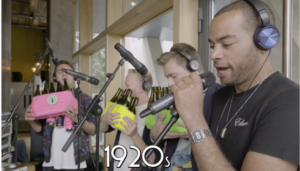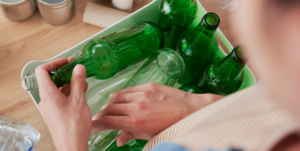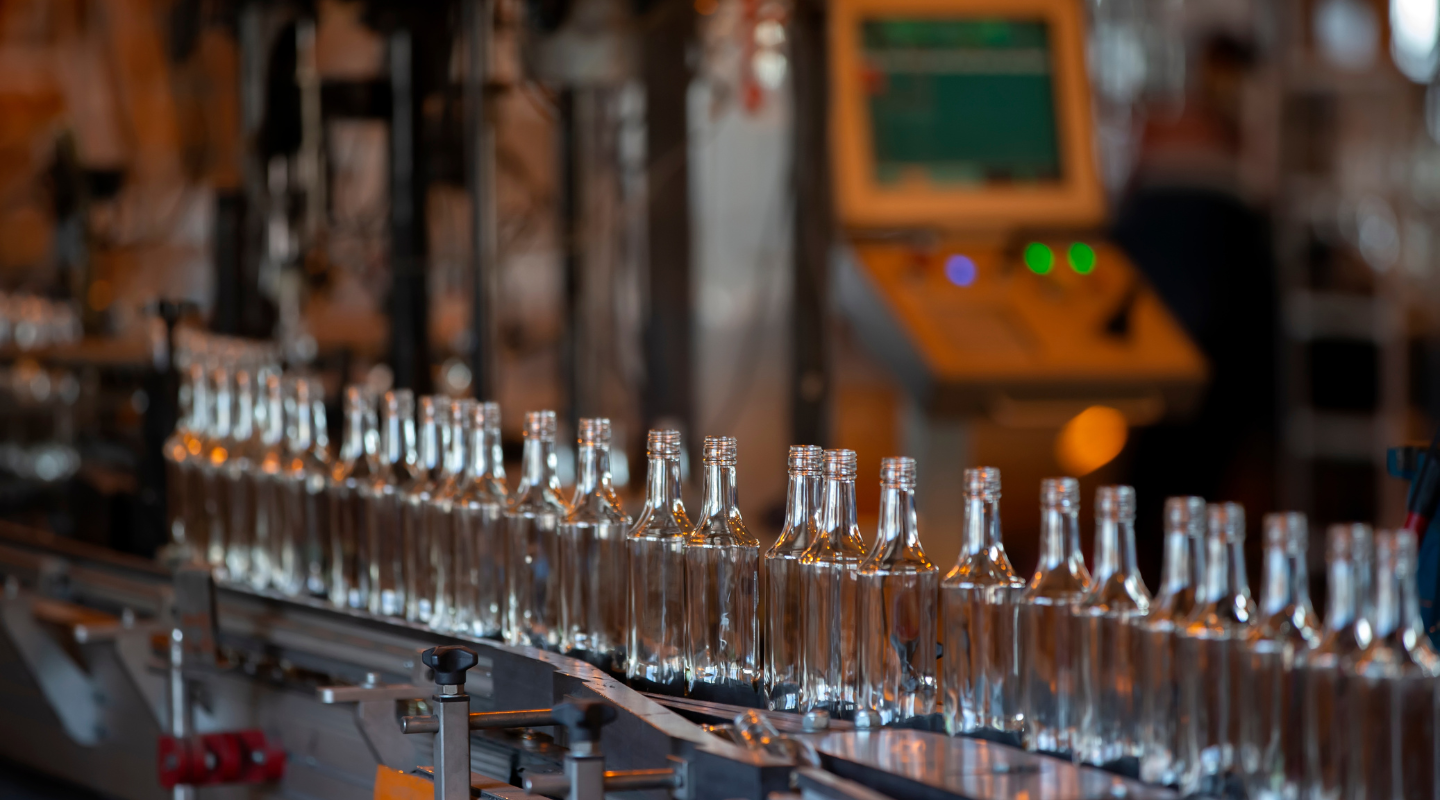Although it all comes down to just three ingredients – sand, soda ash and limestone, along with recycled glass known as ‘cullet’ – you can’t learn the art of glassmaking from a book. Even with modern machinery, you need a real feel for how the ingredients come together to form glass. Someone who has spent years working with glass can feel that something is not quite right, or pick up on slight deviations in the machine’s sound before it results in imperfections. That’s why people often say working with glass is a ‘dark art’ honed over many decades.
I’m coming up for fifty years in the industry myself. I first walked through the doors of Beatson Clark in November 1973, planning to stay a few months as a spare hand before joining the police force. When I first walked onto the shop floor and saw fire everywhere, I wondered what I’d let myself in for! But soon enough, I found myself getting fascinated by the formation of glass, and in the end, I never did get round to joining the police.
‘No two days are ever the same’
One reason? No two days are ever the same. Even technology can’t control for everything. You’ll spot that the final bottle isn’t quite coming out right, and have to track back through the machine, furnace, even back to the raw ingredients to solve it. Maybe it’s down to a change in ambient temperature, or the sand being just a few grams off. Any of this could result in a different type of glass than expected. It’s a challenge, but that’s what makes so many people stay in the industry for so long. There’s also a great deal of camaraderie among glassmakers: within half an hour of sitting down with a peer in Israel or Germany, we’re swapping ideas and stories like we’ve known each other for years.
Many people don’t realise just how far back glass production dates, stretching from production lines in industrial towns, to the secretive medieval guilds of Venice’s Murano, all the way back to the Romans’ discovery of craft glassblowing. Nor do they realise how much glass manufacturing has shaped our local heritage. Take Yorkshire: at one time, the area was home to dozens of glassworks, their influence appearing in everything from town coats of arms to the remnants of cone-shaped furnaces and workers’ cottages dotting the landscape. The isolated Yorkshire moors were even home to a thriving illicit glassblowing industry, where enterprising artisans could escape strict controls on glass production, far from the eyes of the Crown. Our own factory has been in continuous operation since 1751, built alongside the canal at the dawn of the Industrial Revolution for easy transportation of pharma bottles around England.
Nowadays, with so many of us on the cusp of retirement, there’s a real need to get young blood into the glass industry, or a lot of skill will be lost. It’s very hard to learn glassmaking second-hand. That’s why we’re bringing in the latest technology to train a new generation, including virtual reality training technology that recreates the factory floor in 3D. As an immersive programme, it’s the first of its kind, and helps apprentices to interact safely with the machinery to understand what happens between molten glass dropping into a mould and coming out the other side as a bottle – something that previously may have taken them weeks to grasp.
‘Sustainability influences everything we do’
It’s this constant evolution, and juxtaposition of old and new, that keeps glassmaking so interesting. If you brought in one of our employees from a hundred years ago, they’d recognise a lot of their own glassmaking processes still in use – yet questions of sustainability weren’t even a consideration when I was starting out. Nowadays, sustainability influences everything we do, whether it’s planning for furnace rebuilds, raising the quality of recycled glass to save on energy and raw materials, or switching to renewable energy sources. Our technical director is heavily involved in the industry’s ‘Furnace for the Future’, which aims to cut CO2 emissions dramatically by switching to renewable electricity. I think that’s the way we’ve got to go, to make sure our industry is fit for the future.
Glass is the ideal packaging material. People don’t always realise that glass is made up of natural ingredients, and can be endlessly recycled without damaging the environment. As an industry, we’ve set up various initiatives to reinforce that message, ranging from deals with local nightlife hotspots to collect used glass, to campaigning to get people to recycle better. I think many people don’t realise their own impact: they chuck their glass into a bottle bank or collection bin and that’s the last they see of it. They might think it’s automatically sorted and dealt with, but if every glass collection has something that shouldn’t be there, like pottery or Pyrex, that soon becomes a nightmare for the industry.
I believe we have to look after this planet for the generations that will follow us, and if it means that we all have to recycle a bit of glass on a daily basis, and take the time to do it right, then it’s not a lot to ask. And look on the bright side, these days a walk to the bottle bank is a good excuse to get out the house!
Trevor Phillips is Production and Engineering Director with Beatson Clark, based in Rotherham, England. He plans to retire in the next few years following an impressive 50-year career in the glass manufacturing industry, and is passionate about encouraging young people to start a career in glass.
***




